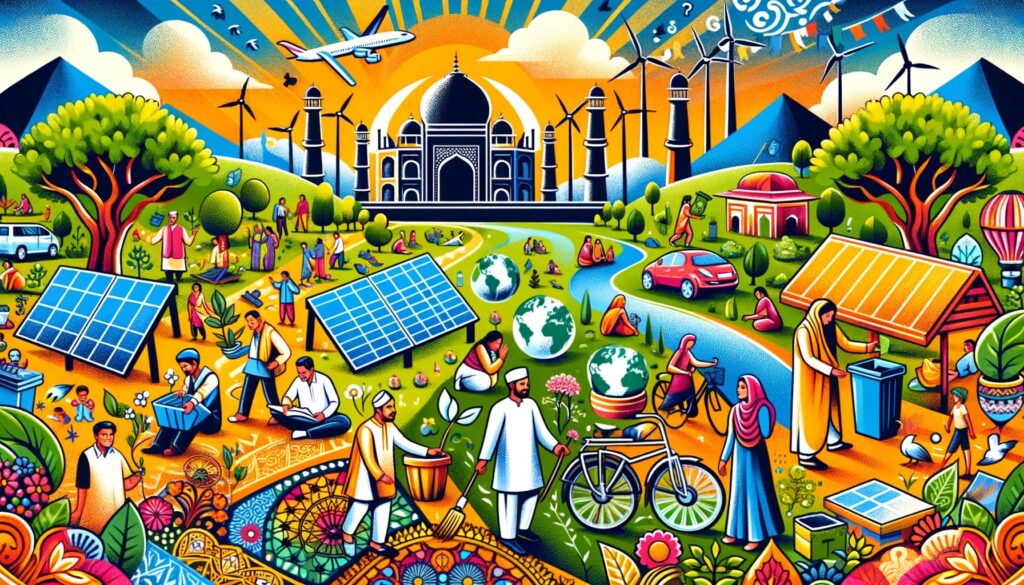In recent years, the global community has become increasingly aware of the urgent need to address climate change. As one of the world’s fastest-growing economies, India faces the dual challenge of sustaining economic growth while reducing carbon emissions. Social awareness plays a pivotal role in this effort, as it can drive collective action, influence policy, and encourage sustainable practices.
Understanding the Impact of Carbon Emissions
Carbon emissions, primarily from burning fossil fuels, are a major contributor to global warming. In India, sectors such as energy, transportation, and industry are significant sources of these emissions. The consequences are dire, including extreme weather events, health problems, and loss of biodiversity. Reducing carbon emissions is crucial to mitigate these impacts and ensure a sustainable future for the country.

The Role of Social Awareness
Social awareness involves educating and engaging the public about the issues and solutions related to carbon emissions. It encompasses understanding the causes of emissions, recognizing their impact on the environment and health, and knowing the actions that can reduce them. Here are several ways social awareness can contribute to reducing carbon emissions in India:
- Promoting Sustainable Practices Awareness campaigns can educate individuals and communities about sustainable practices, such as energy conservation, waste management, and the use of renewable energy sources. Simple actions, like switching to energy-efficient appliances, reducing plastic usage, and using public transportation, can collectively make a significant impact.
- Influencing Consumer Behavior Informed consumers are more likely to support environmentally friendly products and services. By choosing products with lower carbon footprints, consumers can drive market demand towards more sustainable options. Social media and community outreach programs can be effective tools in spreading this awareness.
- Encouraging Policy Support A socially aware population is more likely to support and advocate for policies that address climate change. This includes backing government initiatives for renewable energy, stricter emission regulations, and incentives for green businesses. Public pressure can also compel policymakers to prioritize environmental issues.
- Fostering Corporate Responsibility Businesses play a critical role in reducing carbon emissions. Social awareness can encourage companies to adopt sustainable practices, such as using renewable energy, optimizing supply chains, and reducing waste. Corporate social responsibility (CSR) initiatives can also engage employees and customers in sustainability efforts.
- Empowering Local Communities Local communities can drive grassroots movements for environmental protection. By raising awareness at the community level, individuals can collaborate on projects like tree planting, community gardens, and local clean-up drives. These initiatives not only reduce carbon emissions but also strengthen community bonds.
Case Studies and Success Stories
India has seen several successful examples of social awareness leading to tangible reductions in carbon emissions. The “Swachh Bharat Abhiyan” (Clean India Mission) is one such initiative that has galvanized millions of Indians to participate in cleanliness drives, significantly reducing waste and improving public health.
Another notable example is the rise of solar power in rural areas. Awareness campaigns about the benefits of solar energy have led to increased adoption of solar panels, providing clean energy to off-grid communities and reducing dependence on fossil fuels.
Conclusion
The importance of social awareness in reducing carbon emissions in India cannot be overstated. By fostering a culture of sustainability, influencing consumer behavior, supporting progressive policies, encouraging corporate responsibility, and empowering local communities, social awareness can drive the collective action needed to combat climate change. As India continues to develop, integrating social awareness into environmental strategies will be key to achieving a sustainable and prosperous future for all.
